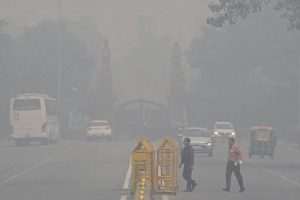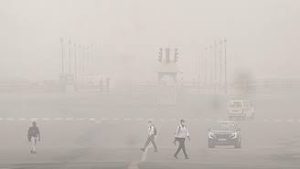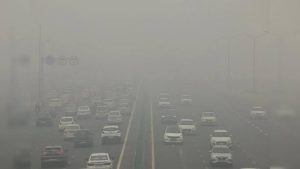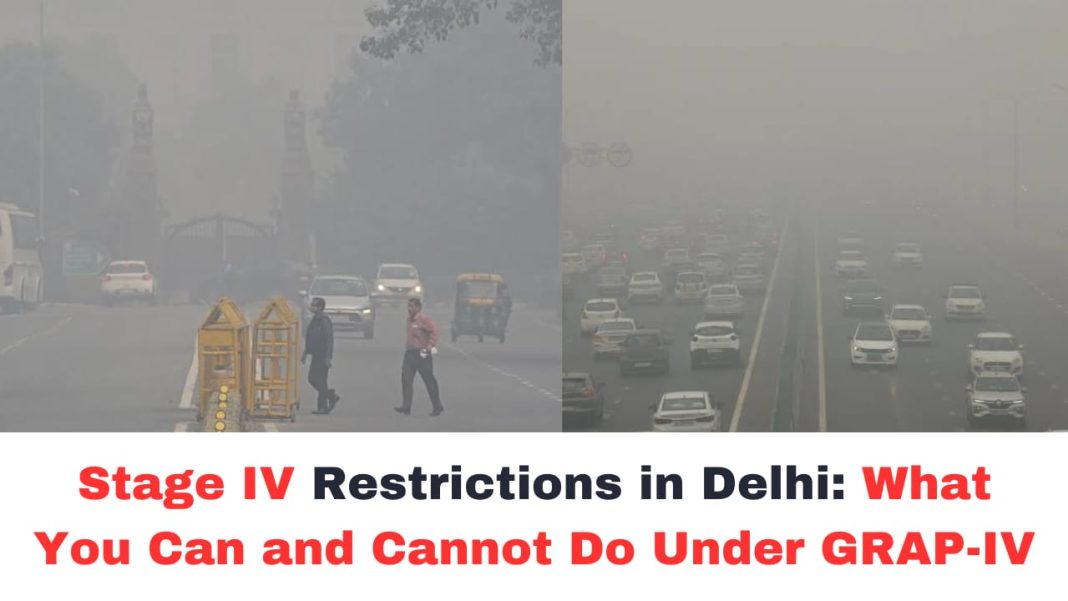Digital News Guru Delhi Desk:
The air quality situation in Delhi-NCR has escalated to a critical level, prompting the activation of the most severe phase of the Graded Response Action Plan (GRAP) — Stage IV. As pollution levels surge into the “severe plus” or emergency category, a raft of restrictions has been imposed to try and curb the environmental and public health crisis. These measures come after a rapid deterioration in air quality, pushing authorities to respond with strict, emergency actions aimed at reducing pollutant emissions from multiple sources.
Understanding GRAP and Stage IV
The Graded Response Action Plan, first rolled out in 2017, is a structured set of pollution control measures, implemented in stages based on the severity of air pollution in Delhi and the surrounding National Capital Region (NCR). Each stage of GRAP corresponds to specific AQI (Air Quality Index) thresholds and mandates actions across different sectors, from transportation and construction to public behavior. Stage IV, the highest alert level, is reserved for “severe plus” conditions, where the AQI exceeds 450. At this level, pollution is not only damaging to those with preexisting health issues but poses a severe risk to even healthy populations.

Key Measures Under GRAP-IV
- Vehicle Restrictions: One of the most impactful measures is the ban on diesel-powered light commercial vehicles (LCVs) and the entry of trucks into Delhi, except for those carrying essential goods. Diesel cars that are not BS-VI compliant are also prohibited. These restrictions aim to tackle emissions from road traffic, which are a significant contributor to Delhi’s pollution problem. However, CNG and electric vehicles are exempt from these bans, as they are considered less harmful in terms of emissions.
- Industrial Operations: Industries and factories using non-clean fuels are required to shut down until air quality improves. Essential services like food processing and pharmaceutical manufacturing may continue but under strict guidelines. Brick kilns, stone crushers, and hot mix plants, known for their dust and particle emissions, have also been ordered to cease operations.
- Construction and Demolition: All construction and demolition activities are suspended, except for critical projects related to national security, healthcare, or rail and metro works. The building sector is notorious for generating dust, a major contributor to particulate matter (PM2.5 and PM10), which exacerbates air quality issues. As a preventive measure, authorities have also placed restrictions on construction material transport.
- Public and Private Sector Work: The administration has advised that 50% of the workforce in both government and private sectors work from home. This is designed to reduce road traffic and subsequently lower vehicle emissions. Essential service workers are exempt from this advisory.
- Public Health and Awareness Measures: To minimize health impacts, residents have been strongly advised to stay indoors as much as possible, use air purifiers, and wear masks when outdoors. Schools and educational institutions have been asked to limit outdoor activities. The advisories particularly stress the need for those with respiratory conditions to take extra precautions.
Why GRAP-IV Was Triggered
The decision to activate GRAP-IV comes as Delhi-NCR’s air quality rapidly deteriorated, primarily due to seasonal factors like stubble burning in nearby states, unfavorable weather conditions, and pollution from local sources. Data shows that this time of year, pollution typically spikes as crop burning in Punjab and Haryana coincides with lower temperatures and stagnant air. Consequently, particulate matter remains suspended, creating a hazardous environment.

The Impact of Stubble Burning
A significant seasonal contributor to Delhi’s air crisis is the burning of crop residue in neighboring states. Despite efforts to curb this practice, farmers continue to burn stubble due to limited alternatives and economic constraints. This adds a massive amount of particulate matter and gases to the atmosphere, severely affecting the air quality in and around Delhi.
Criticisms and Challenges
The imposition of GRAP-IV measures has sparked a debate about the effectiveness of emergency pollution controls. Critics argue that while these restrictions are necessary, they are reactive rather than proactive. Environmentalists have long called for sustainable solutions, such as better waste management in agriculture, a shift towards electric vehicles, and the regulation of industrial emissions year-round. The frequent recurrence of such pollution crises also highlights the need for regional coordination and strict enforcement of existing environmental laws.
How Citizens Are Coping
Residents of Delhi-NCR have had to adapt to living under severe air pollution. Air purifiers are now commonplace in homes, schools, and offices, while face masks and air quality monitoring apps are an integral part of daily life. Despite these efforts, the prolonged exposure to hazardous air has long-term health implications, including a higher risk of respiratory and cardiovascular diseases.
Businesses and services, especially in the construction and transport sectors, are significantly affected by GRAP-IV restrictions. Economic repercussions are also felt as disruptions impact productivity and increase operational costs. However, authorities stress that public health remains the priority, with measures designed to curb further degradation of air quality.

The Way Forward
While GRAP-IV addresses immediate pollution control, the broader air quality crisis in Delhi-NCR calls for sustained, long-term efforts. Initiatives like incentivizing clean energy, developing robust public transport, and providing viable alternatives for stubble management are seen as essential steps to prevent future air emergencies. As the region battles yet another severe air pollution episode, the hope remains that these restrictions will lead to constructive dialogues and actionable policies that focus on lasting solutions.
In conclusion, the imposition of GRAP-IV restrictions in Delhi-NCR underlines the severity of the air quality crisis, prompting immediate yet controversial measures to mitigate the impact. While these interventions may bring short-term relief, the need for comprehensive environmental reforms is clearer than ever.
You May Also Read: Rakesh Roshan Announces Retirement from Directing Films








